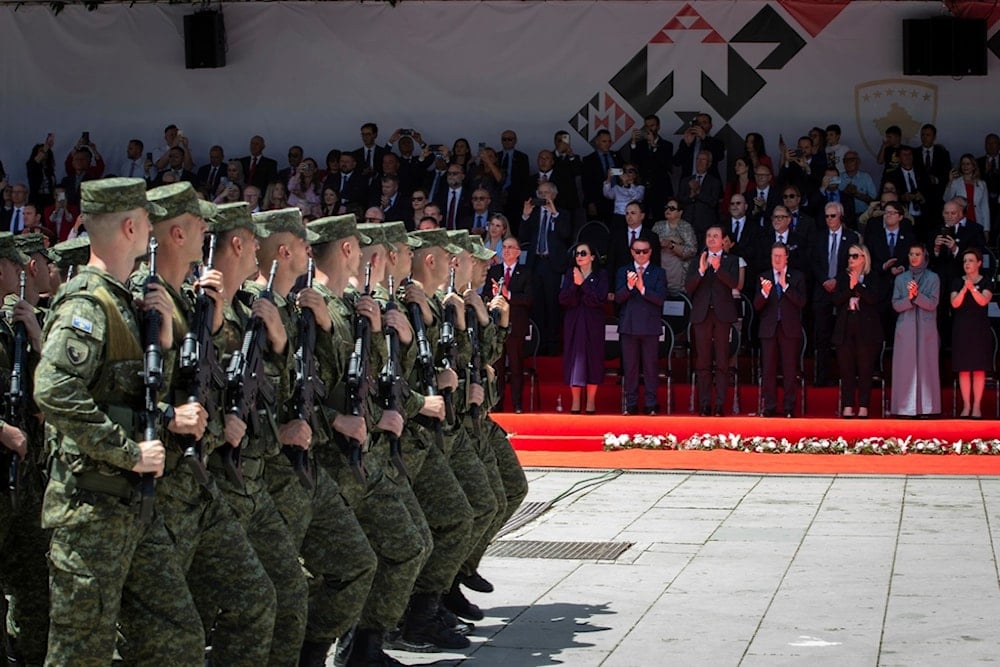Kosovo receives Turkish kamikaze drones, Serbia condemns move
Kosovo received thousands of Turkish Skydagger kamikaze drones, drawing sharp condemnation from Serbia, which accused Turkey of destabilizing the Balkans.
-

Kosovo Army members march at a military parade during a ceremony marking the 25th anniversary of the NATO-led KFOR forces entering Kosovo in the capital, Pristina, Kosovo, Wednesday, June 12, 2024. (AP)
The self-proclaimed Republic of Kosovo has taken delivery of thousands of Turkish-made Skydagger kamikaze drones, Kosovar Prime Minister Albin Kurti announced on Wednesday, in a move that has drawn sharp condemnation from Serbia and raised tensions across the Western Balkans.
Kurti said the shipment arrived at Pristina International Airport Adem Jashari, marking the latest in a series of major military procurements by the Kosovo Protection Force (KPS).
“Containers with thousands of Skydagger kamikaze combat drones arrived today... Dozens of KPS fighters have already been trained to use them,” Kurti wrote on social media, adding that the deal was signed in December 2024 with the Turkish defense firm Baykar, the parent company of Skydagger’s manufacturer.
Originally slated for delivery in January 2026, the drones were delivered three months early, Kurti said. He added that the RTF (Ready-to-Fly) Skydagger FPV systems are equipped with explosive payloads designed to strike both stationary and moving targets.
The drones were reportedly loaded onto Rheinmetall 8x8 multi-purpose military trucks, of which Pristina received 15 last year, ten purchased and five donated by Germany, according to Kurti.
Serbia slams Ankara over drone transfers
Serbian President Aleksandar Vucic denounced Turkey’s actions, calling the drone transfer a “brutal violation” of international law and a direct threat to regional stability.
“I am appalled by Turkiye’s behavior and the violation of the UN Charter and Resolution 1244, as well as the continued arming of the authorities in Pristina,” Vucic said on social media platform X. “It is now completely clear that Turkiye does not want stability in the Western Balkans and is once again dreaming of restoring the Ottoman Empire.”
Vucic added that Serbia, though “a small country,” understands “their real intentions,” signaling rising diplomatic tensions between Belgrade and Ankara.
Growing militarization in the Balkans
This latest delivery follows a pattern of increased Western-backed arming of Pristina. In September 2025, Kosovo received AeroVironment RQ-20 Puma reconnaissance UAVs from the United States, and a month earlier, it was supplied with 50 M1117 armored personnel carriers under another US contract.
In 2022, Vucic accused Western countries of hypocrisy after they criticized Serbia for purchasing FK-3 air defense systems from China, even as the UK supplied the Kosovo forces with Javelin and NLAW anti-tank missiles.
The influx of advanced weaponry into the self-proclaimed republic has heightened concerns over an arms race in the Balkans, where fragile relations between Belgrade and Pristina remain one of Europe’s most volatile flashpoints.

 3 Min Read
3 Min Read










